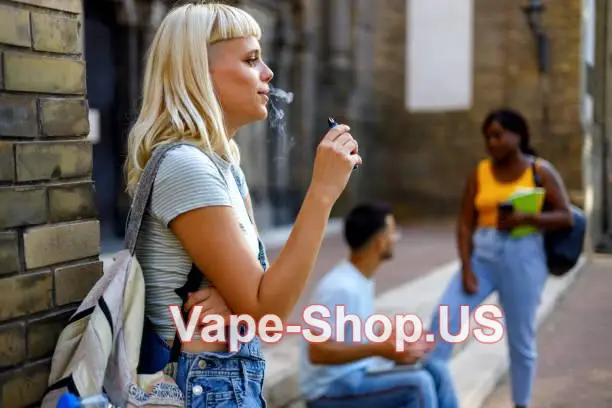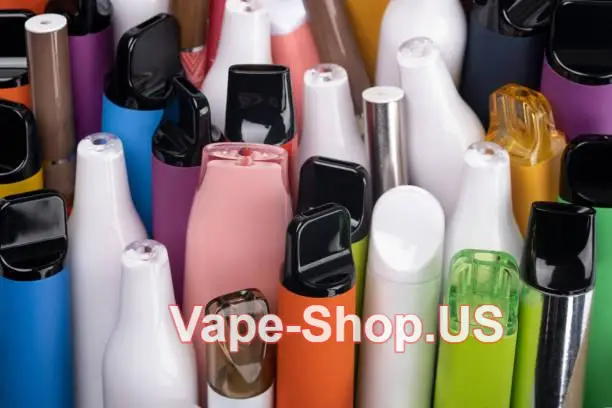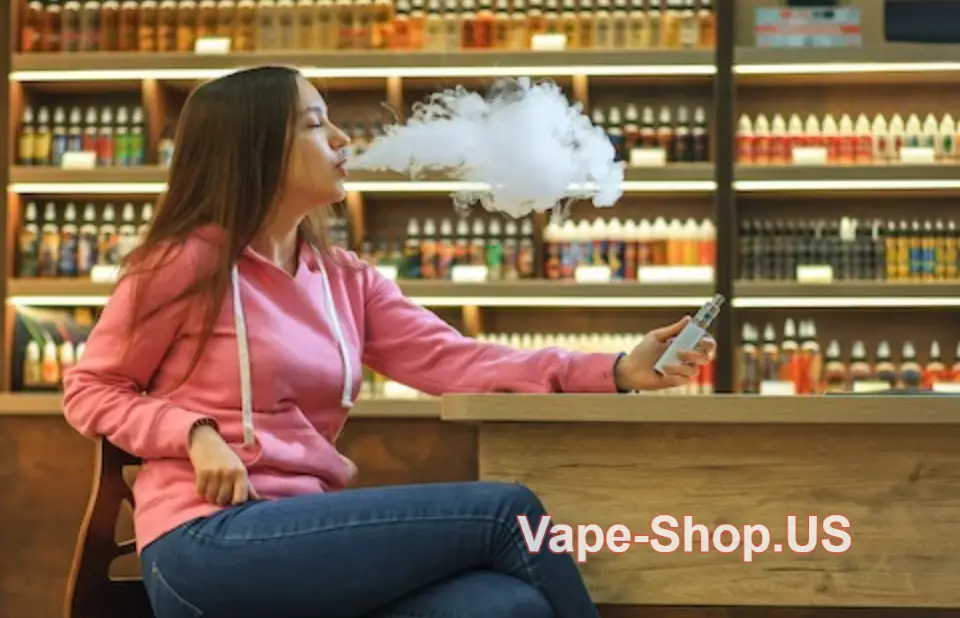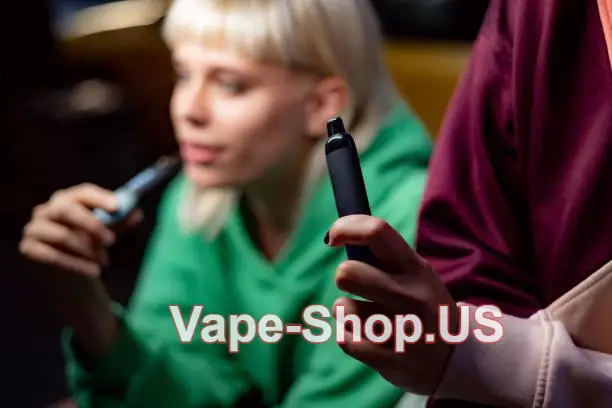Big News! Vape Retailers Facing Major Challenges as Global Regulations Tighten: Kentucky’s New Rules Are Just the Beginning
As the U.S. continues to tighten its grip on vape regulations, retailers across the nation are facing some serious challenges. The latest development comes from Kentucky, where a new law has just come into effect, and it’s sending shockwaves through the vape retail industry. But Kentucky’s move is only the beginning of a broader global trend toward stricter control over vaping products, as the world grows more concerned about the impact of vapes on young people. Let’s dive into this new rule, its effects on the vape industry, and what it means for the future of vape products in the U.S. and beyond.
Kentucky’s New Vape Law: A Hard Hit for Retailers
On January 2, 2025, Kentucky officially implemented a new regulation that directly impacts the sale of vapes in the state. This makes Kentucky the sixth state in the U.S. to enforce the Premarket Tobacco Product Application (PMTA) rule, which requires manufacturers to obtain approval from the FDA before marketing any vape products. In essence, if a vape product hasn’t received FDA approval, it cannot be sold in Kentucky. Retailers who continue to sell unapproved products could face severe penalties.
For vape shops across the state, the law is already causing chaos. Take Ali Mazhab, owner of Kings Vape and Tobacco in Kentucky, for example. He recently revealed that, as a result of the new regulation, he has been forced to clear out about 80% of his inventory. Mazhab’s store, like many others, has relied on the sale of popular, but unapproved, vape products, and the new rules are now forcing him to either discard or return a huge chunk of his stock. This means that consumers in Kentucky could see fewer options available when they walk into their local vape shop.
But it’s not just about clearing shelves. This regulation is part of a broader effort to tackle the growing concern over the rise of vape use among teenagers. According to the latest figures from the Centers for Disease Control and Prevention (CDC), more than 2.7 million U.S. teenagers are currently using vapes. The statistics are particularly troubling: 14.6% of high schoolers and 4.6% of middle schoolers reported using a vape in the past 30 days. With numbers like these, it’s no wonder that lawmakers are cracking down.
A Global Trend: Stricter Regulations Around the World
While Kentucky’s move has certainly been the talk of the vaping world, it’s just one piece of a larger puzzle. Around the globe, governments are increasingly taking action to regulate vapes more strictly. In the United Kingdom, Scotland is now considering a new licensing system to give local councils more power to approve or reject vape sales in their areas. This is in response to growing concerns over the rise of vaping among young people, especially as the number of teens using vapes has skyrocketed in recent years. In fact, the latest reports suggest that 9% of 16-18-year-olds in the UK regularly use vapes, a 50% increase from the previous year. To make matters worse, the UK has also seen a significant rise in the disposal of single-use vapes, which are causing a growing environmental problem. According to the Environmental Protection Agency in the UK, an average of 5 million disposable vapes are discarded every week, costing the government more than £20 million a year in waste management.
The UK’s health experts have also raised concerns about the flavors used in vaping products. Flavored vapes, often designed to mimic candy, fruit, or dessert flavors, are particularly appealing to younger users. This is why some lawmakers are pushing for a complete ban on disposable vapes, especially those with fruity or sweet flavors that are seen as attractive to minors. Scotland’s proposed licensing system would give local authorities the ability to crack down on illegal vape sales and impose fines or even revoke business licenses for non-compliant retailers.
The FDA’s Role in Shaping the Future of Vape Sales
In the U.S., the FDA has become a key player in regulating the vape industry. The PMTA rule, which requires manufacturers to submit their products for FDA approval before they can be marketed, has already led to the removal of several popular vape brands from the shelves. For example, brands like Juul, once the dominant force in the vape industry, have faced massive challenges in obtaining FDA approval for their products. Many of their flavored vapes, including popular options like mango and cucumber, have been banned, as the FDA aims to curb the appeal of vapes among minors.
One of the primary concerns with flavored vapes is their addictive potential, particularly among teenagers. Experts argue that flavors like bubblegum, cotton candy, and tropical fruit encourage young people to try vaping, with some even saying that the flavors mask the harshness of nicotine, making it easier for beginners to start vaping and potentially get addicted. While the debate continues, the FDA is committed to enforcing its rules, and more regulations are likely on the horizon.
The Impact on Retailers: Adapt or Close
Vape shop owners like Ali Mazhab are finding themselves caught in the middle of a complex regulatory landscape. They face a difficult decision: comply with the new laws, which may involve scrapping large portions of their inventory, or risk being fined or even shut down by the authorities. For many small business owners, this is a huge blow. Mazhab’s story is just one of many. As more states adopt similar regulations and the FDA continues to crack down on unapproved products, retailers across the country are being forced to adapt.
For some, this means pivoting to FDA-approved products that are compliant with the new rules. Others are being forced to scale back operations or even close up shop altogether. The costs of compliance are high, and many small vape shops simply can’t afford to make the necessary changes. For example, the cost of submitting a PMTA can run into the millions of dollars, which is an expense that many smaller companies simply can’t bear. In the long run, this could lead to a consolidation of the market, with only the biggest players able to survive.
Looking Ahead: What’s Next for the Vape Industry?
As the regulatory landscape continues to shift, the future of the vape industry remains uncertain. On one hand, the tighter regulations are a step in the right direction for public health, especially in efforts to protect young people from the dangers of nicotine addiction. But for retailers, manufacturers, and consumers, the landscape is increasingly challenging.
In the U.S., it’s likely that more states will follow Kentucky’s lead and implement similar PMTA rules. As the FDA continues its work, more products will likely be pulled from the market, leaving fewer options for consumers. For vape shop owners, adapting to these changes will be key to staying afloat. Many will have to shift their focus to products that are FDA-approved and meet the growing demand for less harmful alternatives.
Internationally, the trend toward tighter regulations is set to continue, with governments around the world grappling with how to balance the benefits of vaping as a smoking cessation tool against the potential risks of nicotine addiction and environmental damage.
As vape regulations become stricter, one thing is clear: the days of the wild west vaping market are numbered. In the coming years, the industry will likely see more regulation, more compliance, and fewer unapproved products on the market. Whether this will ultimately lead to a safer, more controlled vaping industry remains to be seen, but one thing is for sure: the vape world is changing, and it’s changing fast.


Vape Reviews